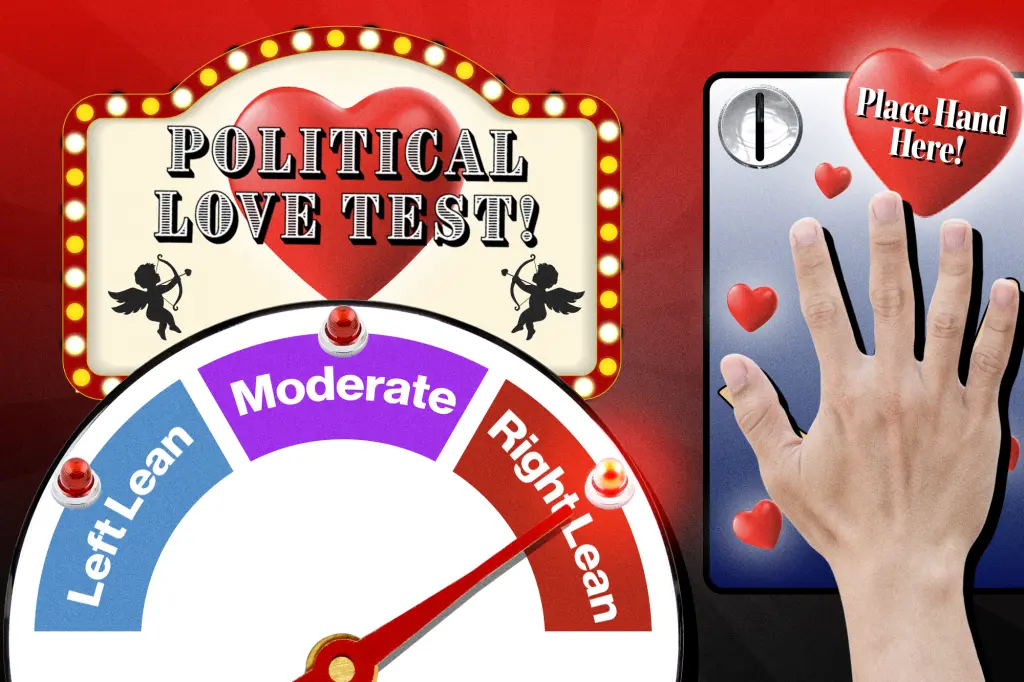Politics in Dating: Women’s Preferences Across the Spectrum
In the modern dating landscape, political compatibility has become increasingly important, especially for women on the political extremes. A recent study reveals that many women would rather remain single than compromise their political beliefs when selecting a partner. This growing trend highlights how our political identities have become deeply intertwined with our personal values and relationship expectations.
The research, conducted by teams from the University of Göttingen and University of Jena in Germany, analyzed responses from over 13,000 single women across 144 countries through the Ideal Partner Survey. Their findings were striking: women on the far-left were the most unwilling to compromise, with 47% preferring to remain single rather than date someone with misaligned political views. Right-leaning women followed closely behind at 41%. In contrast, political moderates showed much more flexibility, with only 22% considering politics a relationship dealbreaker. This polarization reflects broader societal trends where political identity has evolved from simply indicating voting preferences to representing fundamental worldviews and moral frameworks. As Dartmouth political scientist Sean Westwood notes, “Political affiliation reveals a great deal about a person’s character… dismissing someone based on what their partisanship implies about their broader worldview is an entirely different matter than rejecting them over a single candidate preference.”
The study uncovered fascinating differences in partner preferences across the political spectrum. Conservative women placed higher value on traditional attributes, prioritizing religion, shared ethnicity, financial stability, and career success in potential partners. They also rated height as particularly important, showing stronger preferences for taller partners compared to their liberal counterparts. Left-leaning women generally placed less emphasis on traditional values of any kind. These divergent priorities reflect fundamental differences in worldviews – conservative women often embrace more traditional gender roles and family structures, while progressive women may prioritize equality and shared values over conventional attributes. As Penn State professor Pete Hatemi observes, “You’re more likely to have a long-term partner that you don’t find very attractive than one that has opposite political views on highly important topics.”
Despite these differences, some qualities transcended political divides. Kindness and supportiveness were universally valued, with women across the spectrum considering a caring partner non-negotiable. This common ground suggests that while politics may create initial barriers, fundamental human qualities still form the foundation of successful relationships. Lead researcher Tanja Gerlach emphasized this point, noting that emotional connection and support remain essential regardless of political leanings. However, the path to finding these shared qualities has become more complicated as political identities grow more entrenched and dating apps make it easier than ever to filter potential matches based on ideology before even meeting them.
The growing importance of political compatibility in relationships reflects broader social changes. Political scientist Sean Westwood explains that this alignment is “a matter of selection, not indoctrination. The political right does not create traditionalists; it attracts them. The underlying values come first.” This perspective helps explain why politics has become such a powerful sorting mechanism in modern dating. When someone identifies as conservative or progressive, they’re signaling much more than voting habits – they’re communicating fundamental beliefs about family, community, authority, and fairness. Laura Nelson, a sociology professor at the University of British Columbia, emphasizes this point: “Left vs. right is not just about who you will vote for. It’s tied to different – and competing – conceptions of morality. When you think about who you want to build a life with, it would be shocking if political beliefs were not correlated with partner preferences.”
While the research provides valuable insights, it’s important to note its limitations. The data was collected in 2018 and predominantly reflects women in wealthier Western countries, meaning results might look different today or in other cultural contexts. Additionally, the sample was not evenly distributed across the political spectrum – 22% of respondents leaned left, 71% identified as moderate, and only 7% leaned right. This skewed distribution might affect the generalizability of the findings. Nevertheless, the study highlights a significant social trend with real implications for how people form relationships in politically polarized times. As dating increasingly occurs through apps and online platforms where political filtering is commonplace, the challenge of connecting across ideological divides may only grow more pronounced, potentially reinforcing social bubbles and reducing opportunities for cross-political understanding.














